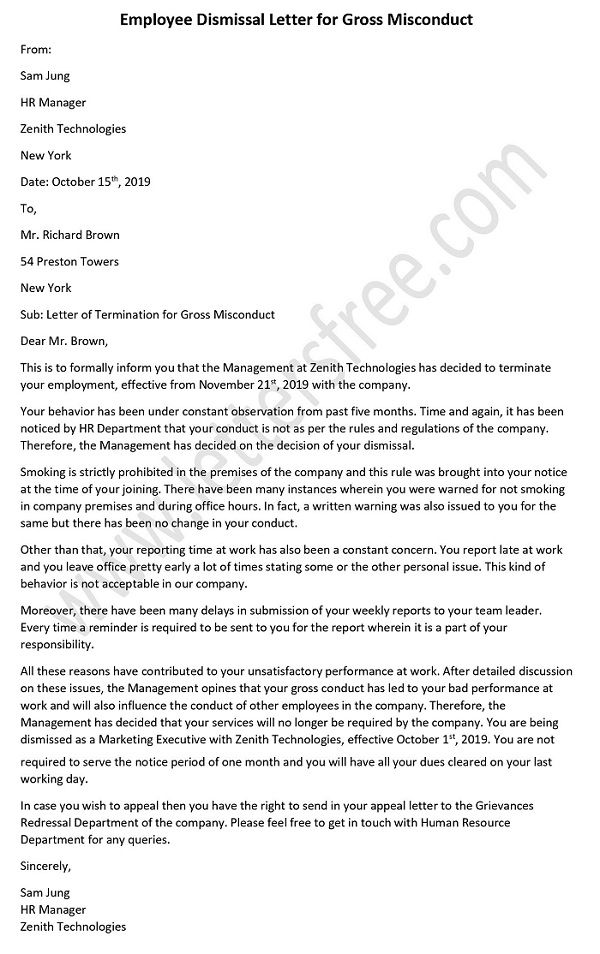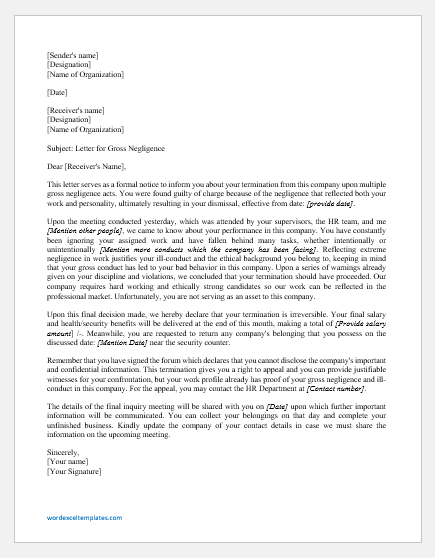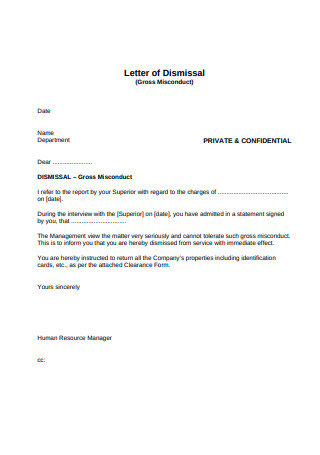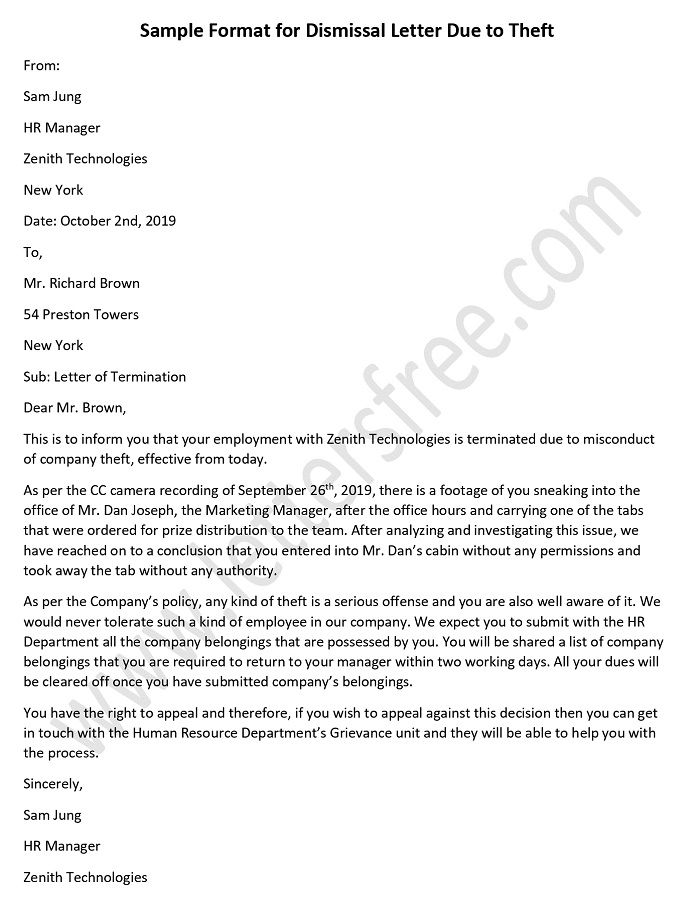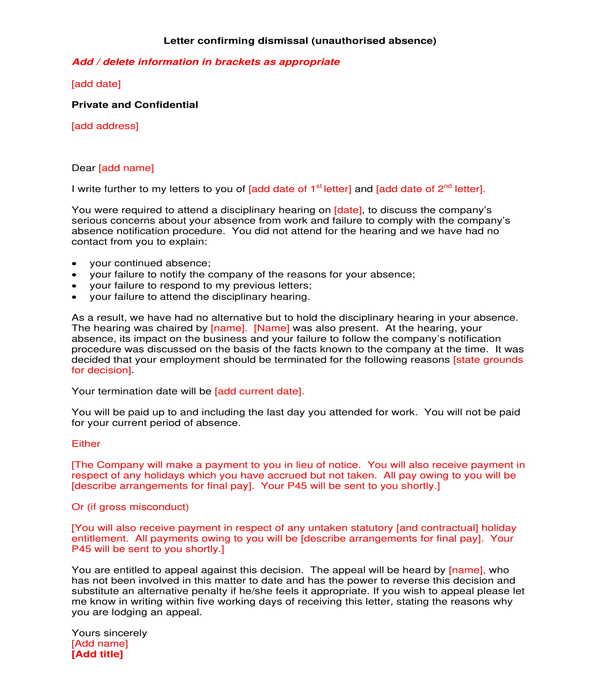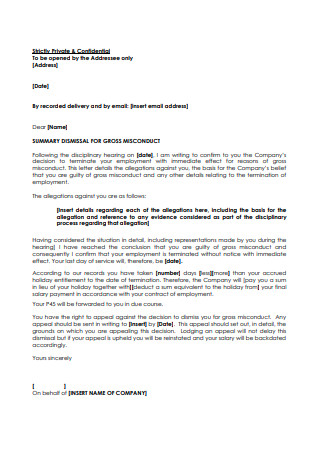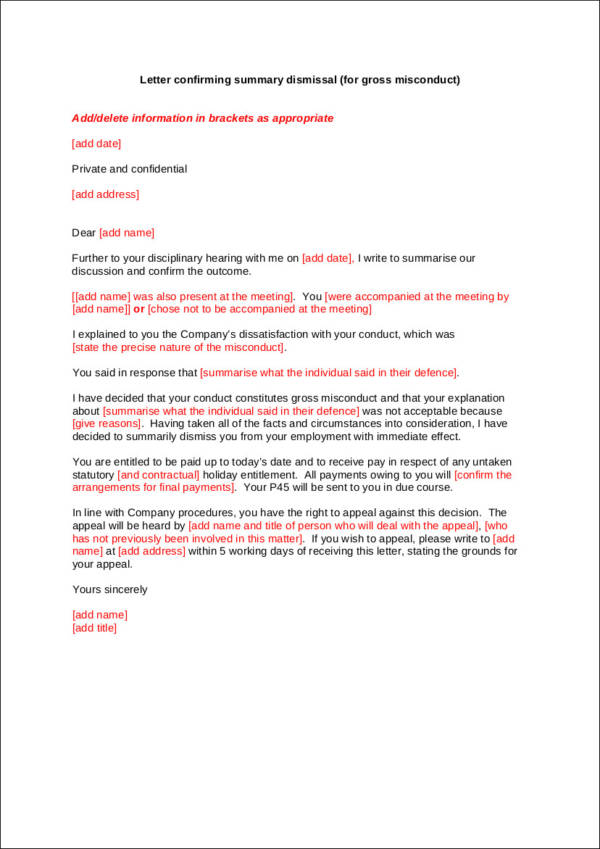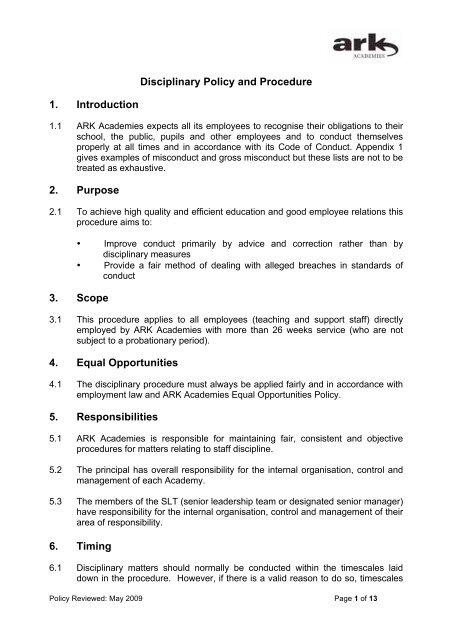Outrageous Info About How To Appeal Against Gross Misconduct
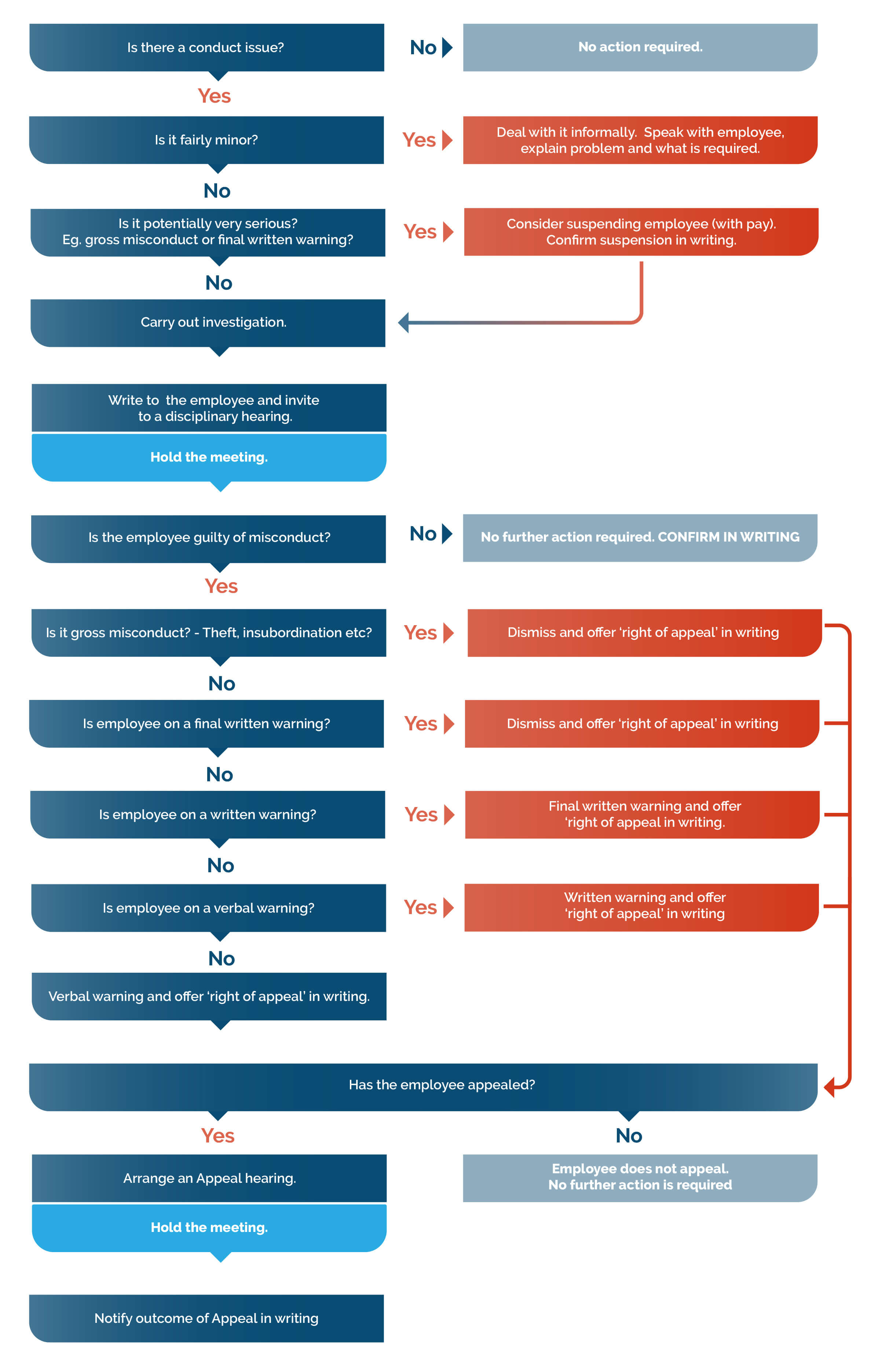
You have the right to appeal against any disciplinary action your employer takes against you.
How to appeal against gross misconduct. Gross misconduct is either deliberate wrongdoing or gross negligence by the employee which is so serious that it fundamentally undermines the relationship of trust and. Appealing a disciplinary or grievance outcome. Appealing through your employer’s appeal process.
See if a different outcome is appropriate. An unfair dismissal appeal letter can be used to challenge disciplinary decisions made by an employer including: Rummage through your papers until you find everything and anything associated with the alleged willful misconduct and your justified reason for the misconduct.
Direct referral to arbitration and appeals. Your letter of appeal should outline why you disagree with your employer’s decision. There are 2 ways you might be able to challenge your dismissal:
Gross misconduct can also be when someone is physically violent, abusive, or bullying, when they show serious insubordination, when they discriminate against others, or seriously misuse a. In sandwell & west birmingham hospitals nhs trust v westwood, the employment appeal tribunal (eat) concluded that gross misconduct should include either “deliberate. The decision not to include an appeal procedure is also premised on the view that the parties may prefer to include in their disciplinary procedure.
Use backup documents to prove your case, if possible. Most common examples of gross misconduct. This advice applies to england.
If your appeal against dismissal is unsuccessful and your employer’s decision remains. Once the agreement is signed, you will lose the ability to pursue any employment tribunal or court claims arising out of your employment or its termination. Following your appeal hearing, you should receive the outcome (in writing) as soon as possible.
